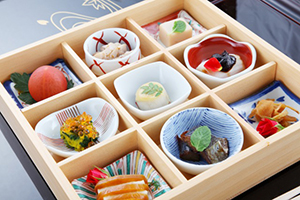 It is a little-known fact that the Thermophis baileyi (perhaps more commonly known as the hot spring snake) gets its warmth and energy not from the sun, but from slithering in and out of the thermal waters near Lhasa, Tibet.
It is a little-known fact that the Thermophis baileyi (perhaps more commonly known as the hot spring snake) gets its warmth and energy not from the sun, but from slithering in and out of the thermal waters near Lhasa, Tibet.
I’ve often imagined what it would be like to be one of these snakes, pondering the delights of such a carefree and comforting existence. So when I arrived at Yutorian Onsen, I felt I had finally found the hot spring of my dreams.
Japanese traditional inns (or ryokan) are scattered around the country, and they’re often furnished with onsens. They usually offer a standard set of amenities: a room with a snug futon, yukata, toothpaste and a toothbrush, a public bath or rotenburo, and if you are lucky, a fresh set of dry towels for free!
However, Yutorian is much more than your standard, run-of-the-mill ryokan. It’s truly a rare gem in the pile. In addition to superb services and amenities, guests are treated with warmth and hospitality from the moment of their arrival until their departure back to the real world.
Yutorian is one of two very unique, traditional Japanese inns owned and run by a group called Eko-keikaku (Eco Planning). The name of this company already suggests the most important element in their decision-making, design, and daily business mantra.
The concept is based on the desire to keep the old Japanese spirit alive; whether it means keeping the onsen culture flourishing, the irori (Japanese fireplace) burning or nourishing nostalgic Japanese and uninitiated foreign visitors with its traditional cuisine.
Yutorian Onsen covers a large area in a village called Kawaba-mura, a short ride from Numata in Gunma-ken. It was built and decorated with material that used to belong to old Japanese farmhouses; 300 year-old beams, carvings, even some wooden statues from shrines which served as mayoke (charms to ward off evil), and continue to do so here.
The 160 antique chests and other intriguing historic articles, (all of Japanese origin) are mostly displayed in glass cabinets in the main hall, making a visit to this onsen an aesthetically and physically pleasing experience.
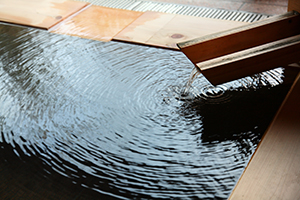 The onsen water used here is local. In fact, the actual source is found on the premises, inside one of the guest baths. Every day the blue and red noren (entrance curtains indicating which bath is for men and which is for women) are changed so that the guests staying at Yutorian Onsen have the opportunity to enjoy the different views each bath provides.
The onsen water used here is local. In fact, the actual source is found on the premises, inside one of the guest baths. Every day the blue and red noren (entrance curtains indicating which bath is for men and which is for women) are changed so that the guests staying at Yutorian Onsen have the opportunity to enjoy the different views each bath provides.
The facility’s charming setting – framed by cherry blossoms in spring and surrounded by green rice fields in summer – appeals to the day visitor or curious passerby as much as to overnight guests. There is another set of public baths designated especially for the use of higaeri day-trip visitors who can enjoy everything the ryokan has to offer, from the baths to the cuisine to the wonderful fresh smell of hinoki wood that fills each hall and corridor.
Opened in March 2010, Eko-Keikaku presents the first part of yet another one of their captivating ventures. Yutorian Onsen introduces itself as a ryokan, but this term hardly does it justice. An independent observer would see a small rural community of thatched roof houses set in the natural scenery of old Japan, complete with rice fields, views of surrounding pine tree hillsides, and a shrine originating in 1755.
Four of the thatched houses standing to one side of the complex appear to be individual but are interconnected with each other and the main hall, serving as the principal accommodation area.
Every one of these houses is divided into two private apartments, each of which are comprised of two large tatami rooms with wardrobes full of thick, sheep-wool futons, blankets, and bean pillows. One of these apartments can accommodate two families and larger groups can all socialize in a common room situated between the houses.
Each residence is fitted with beautiful antiques, ranging from apothecary cupboards, braziers and carvings to very European style secretary tables with velvety cushioned chairs, all coming from different periods and areas in Japan.
All of the apartments havan irori table where guests can drink tea and munch sweets from the bowl. Three TVs, a large, well-lit bathroom with two sets of cosmetics for him and her, two toilets, an inside bath and a rotenburo outside on the terrace are also included. The terrace runs down the length of the room overlooking a private little garden on the bottom floor.
The overall feeling of the Yutorian residences is one of warmth and comfort. You truly feel as though you are experiencing old Japan, but with all the modern-day conveniences. In fact, this combination of traditional and modern was one of the foremost thoughts in creating this remarkable establishment.
Let me take a moment to talk about the extraordinary cuisine. The ten-course dinner at Yutorian Onsen takes literally hours to get through, but they are hours of immense pleasure and bliss. Each dish is served one after another, so you’re not overwhelmed by the sheer amount and manage to eat every single bite of every single delicacy with no feelings of overindulgence or gluttony.
Seventy to eighty per cent of the ingredients used are locally harvested or purchased, giving the food not only a true local flavor but sending a message of sustainability.
Luxury in this ryokan is, rather unusually, accompanied with the practicalities of everyday life. The whole complex is barrier free; physically, aged (and very exhausted) guests can reach their quarters by getting into a self-operated electric car.
Pet lovers, reluctant to leave their fur balls home alone will have no problem here since the ryokan reserves a little space for our four-legged friends’ living quarters. The kennels are clean, hygienic and even have heating!
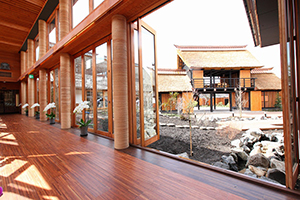 For the more active guests there are several points of interests to keep them occupied. On the premises one small room is allocated as a kind of show room, where curious visitors can watch how soba noodles are made from scratch. Not far down the road from the onsen is a farmers’ market where you can stop by on your way home to pick up some of the local delicacies such as fruits, vegetables, jams and honey, as well as deer or dried wild boar meat.
For the more active guests there are several points of interests to keep them occupied. On the premises one small room is allocated as a kind of show room, where curious visitors can watch how soba noodles are made from scratch. Not far down the road from the onsen is a farmers’ market where you can stop by on your way home to pick up some of the local delicacies such as fruits, vegetables, jams and honey, as well as deer or dried wild boar meat.
Just around the corner from the ryokan is a local sake brewery with their own fresh water spring in the garden, which they use for brewing. The friendly staff is always willing to take their visitors around and explain how sake is made. Sake aficionados should visit in January or February, when the conditions for making sake are the best.
If you can, I highly recommend staying at Kawaba Onsen Yutorian this year. The regular ryokan will be launched soon and the prices of these deluxe suites will shoot up to three times more than they are now. This is your last chance to go and indulge in luxury on a budget, so go and treat yourself!
Kawaba Onsen Yutorian
http://kawaba-yutorian.jp/
Story by Veronika Ciernikova
From J SELECT Magazine, June2010

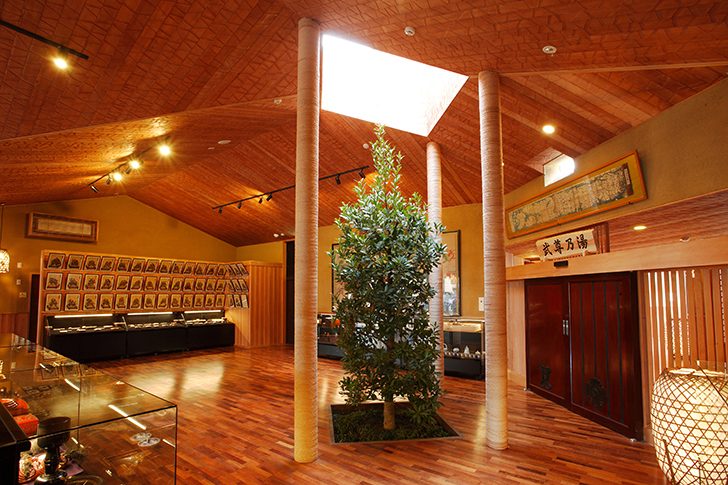


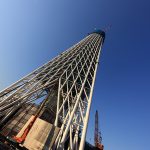
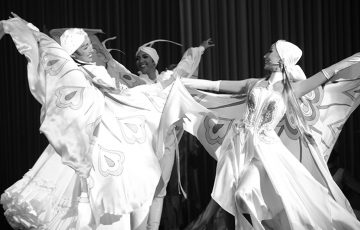
-360x230.jpg)


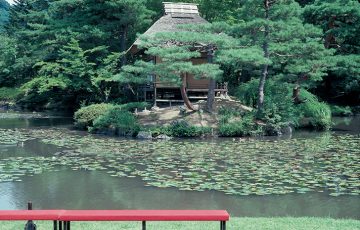

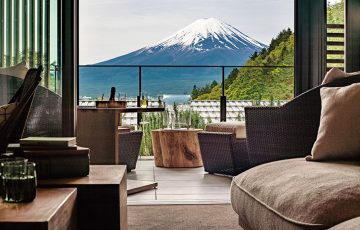



Recent Comments